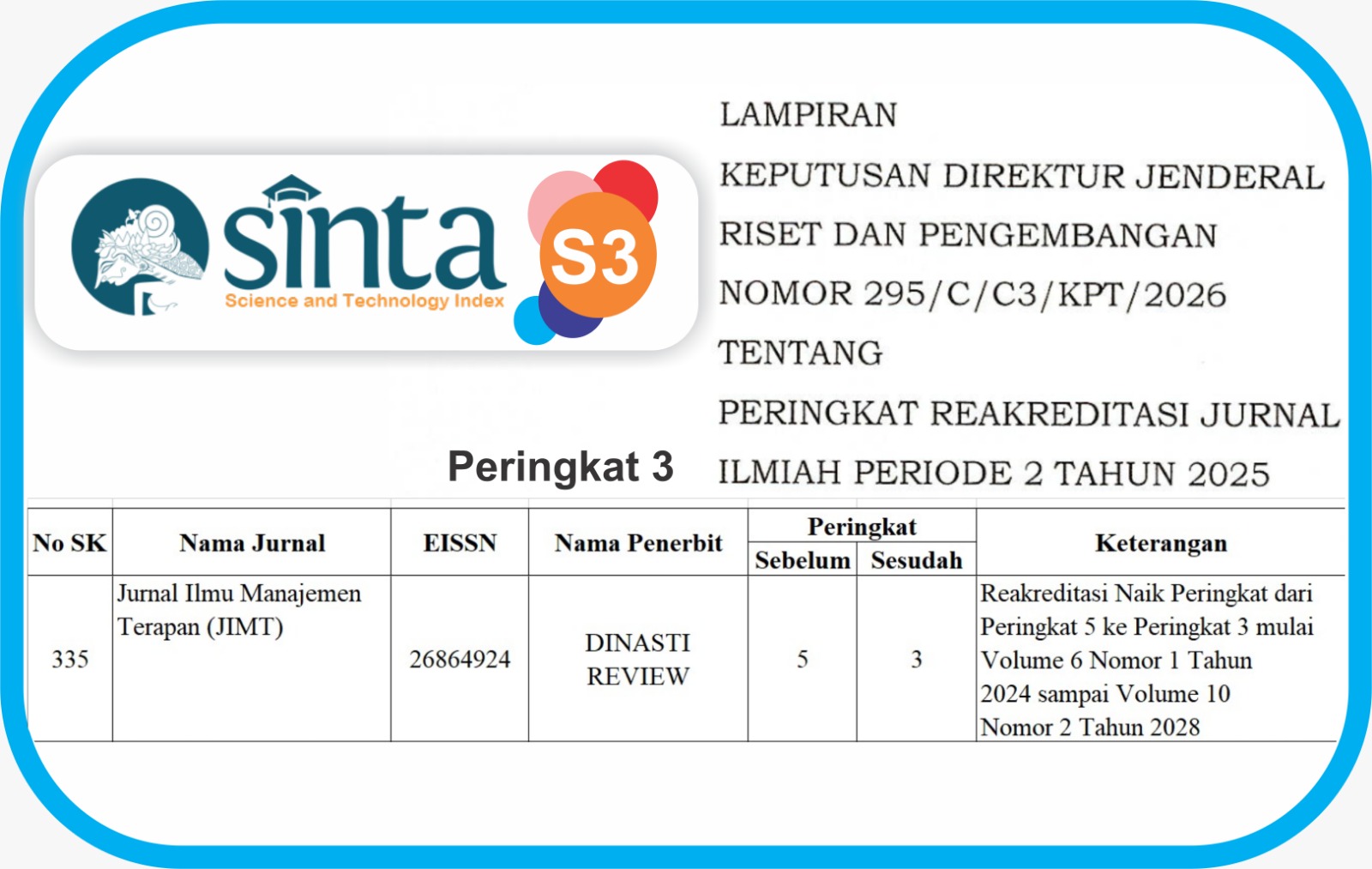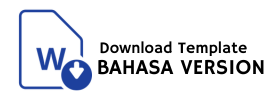Pengaruh Kepemimpinan terhadap Kinerja Karyawan pada PT. Perkebunan Nusantara VI Jambi
DOI:
https://doi.org/10.38035/jimt.v5i3.1815Keywords:
Employee Performance, Leadership, PT. Perkebunan Nusantara VI JambiAbstract
Employee performance includes the quality and quantity of output as well as reliability at work. Employees can work well if they have high performance so they can produce good work too. With high employee performance, it is hoped that organizational goals can be achieved. On the other hand, organizational goals will be difficult or even unattainable if the employees do not have good performance so they cannot produce good work. This research aims to determine the description of leadership and employee performance, as well as to determine the influence of leadership on employee performance at PTPN VI Jambi. The research method used in this research is descriptive and quantitative methods. In this research, the population is all employees at PT. Perkebunan Nusantara VI Jambi. In this research, the sampling method was simple random sampling, so the research sample consisted of 74 respondents. The research results are shown by the results of the t test producing a significance value of 0.000, which means the significance value is less than 0.05, which means leadership at PT. Perkebunan Nusantara VI Jambi influences employee performance. So the R Square value is 0.446 or 44.6%. This means that the independent variable (leadership) has an effect on the dependent variable (employee performance) by 44.6. Based on the research that has been conducted, it can be concluded that leadership at PT. Perkebunan Nusantara VI Jambi shows the high category with a score of 301.5. Meanwhile, employee performance at PT. Perkebunan Nusantara VI Jambi was proven to be in the very high category with a score of 311. Then leadership had a significant positive effect on employee performance by 44.6% at PT. Perkebunan Nusantara VI Jambi.
References
Abbas, Q., & Yaqoob, S. (2009). Effect of Leadership Development on Employee Performance in Pakistan. Pakistan.
Balasundaram, N. (2005). Job Satisfacation and Employees’ Work Performance: a Case Study of People’s Bank in Jaffna Penunsula. Sri Lanka: Jaffna Penunsula.
Farida, U. (2015). Manajemen Sumber Daya Manusia II. Ponorogo : Umpo Press.
Fattah, N. (2013). Landasan Manajemen Pendidikan. Bandung : PT. Remaja Rosdakarya.
Handoko. (2015). Manajemen Sumber Daya Manumur, Cetakan Pertama. Bandung: Pustaka Setia.
Hayati, P. R., Hidayat, K. S., Arief. (2016). Pengaruh Gaya Kepemimpinan, Motivasi, dan Disiplin Kerja Terhadap Kinerja Karyawan (Studi pada Karyawan Seksi PKC di Kantor Pengawasan dan Pelayanan Bea dan Cukai Tipe Madya Pabean Tanjung Perak Surabaya). Jurnal Perpajakan (JEJAK). Vol 11. No 1.
Loliyana, R. (2021). Pengaruh Gaya Kepemimpinan, Motivasi Kerja, dan Lingkungan Kerja Terhadap Kinerja Karyawan PT. Asuransi Jiwasraya di Bandar Lampung. Jurnal Manajemen Universitas Bung Hatta. Vol 16. No 1.
Mamik. (2016). Manajemen Sumber Daya Manusia. Jakarta: Zifatama Jawara.
Mangkunegara, A. P. (2013). Manajemen Sumber Daya Manumur Perusahaan. Bandung : Remaja Rosdakarya.
Robbins, S. (2018). Perilaku Organisasi. Organizational Behavior ( Buku 1, Edisi Ke-12). Jakarta : Salemba Empat.
Rivai, V. (2006). Manajemen Sumber Daya Manusia Untuk Perusahaan: Dari Teori Ke Praktik, Edisi Pertama. Jakarta: PT. Raja Grafindo Persada.
Sudarmanto. 2015. Kinerja dan Pengembangan Kompetensi SDM, edisi tiga. Yogyakarta: Pustaka Pelajar.
Sugiyono. (2019). Metode Penelitian Kuantitatif, Kualitatif, dan R&D. Bandung : Alphabet.
Thoha,M. (2018). Pembinaan Organisasi, Proses Dianosa, dan Intervensi, Manajemen Kepemimpinan. Yogyakarta: Gava Media.
Wibowo. (2014). Manajemen Kinerja. Edisi Keempat. Jakarta: Rajawali Pers.
Downloads
Published
How to Cite
Issue
Section
License
Copyright (c) 2024 Selvi Selvi, Ubaidillah Ubaidillah, Muhammad Syukri, Fadil Iskandar

This work is licensed under a Creative Commons Attribution 4.0 International License.
Penulis yang mempublikasikan manuskripnya di jurnal ini menyetujui ketentuan berikut:
- Hak cipta pada setiap artikel adalah milik penulis.
- Penulis mengakui bahwaJurnal Ilmu Manajemen Terapan (JIMT) berhak menjadi yang pertama menerbitkan dengan lisensi Creative Commons Attribution 4.0 International (Attribution 4.0 International CC BY 4.0) .
- Penulis dapat mengirimkan artikel secara terpisah, mengatur distribusi non-eksklusif manuskrip yang telah diterbitkan dalam jurnal ini ke versi lain (misalnya, dikirim ke repositori institusi penulis, publikasi ke dalam buku, dll.), dengan mengakui bahwa manuskrip telah diterbitkan pertama kali di Jurnal Ilmu Manajemen Terapan (JIMT).














































